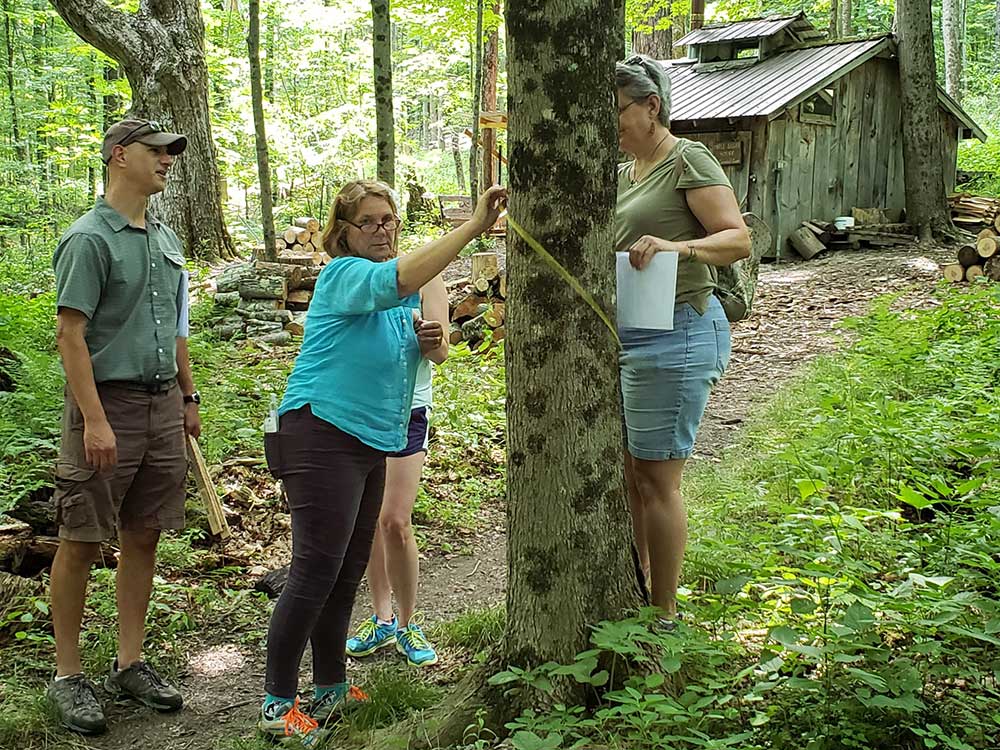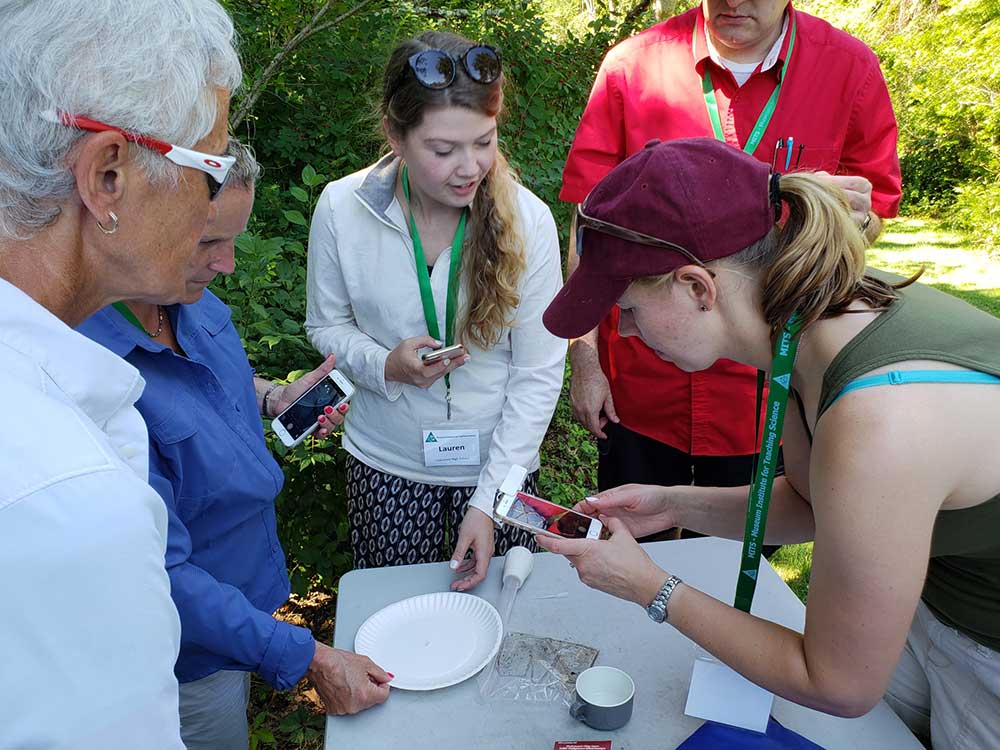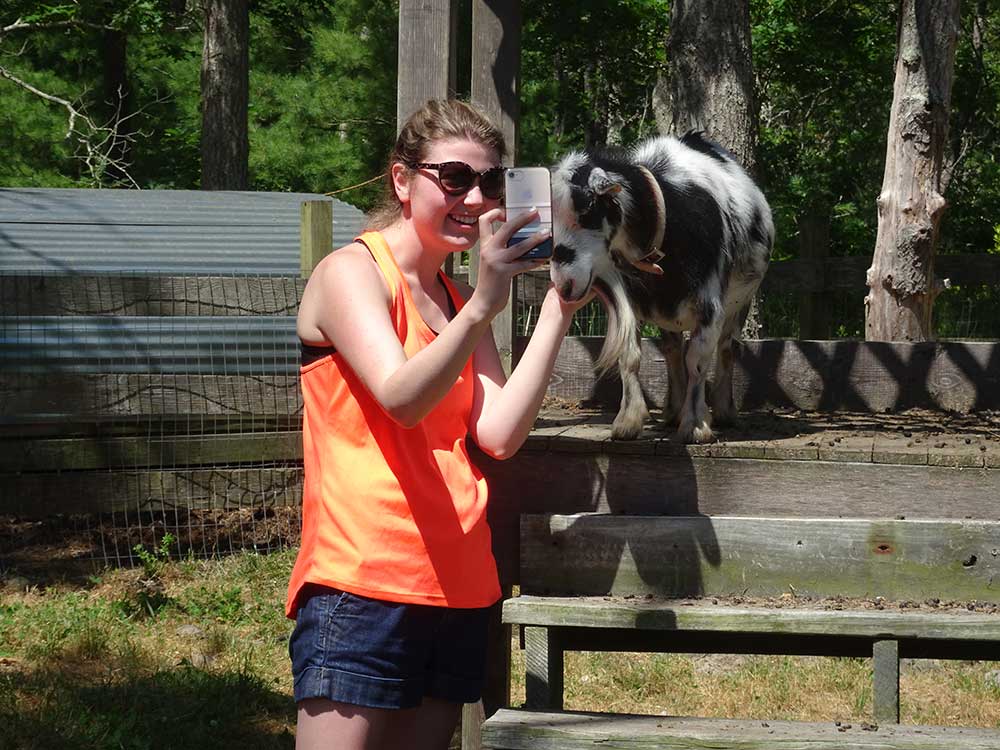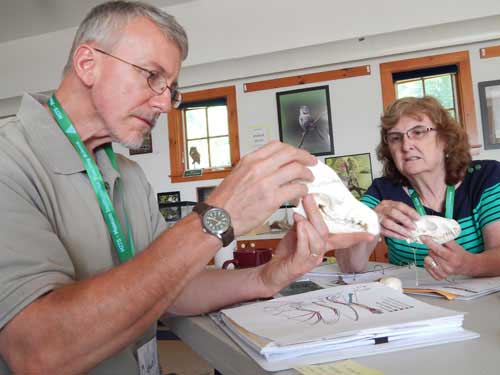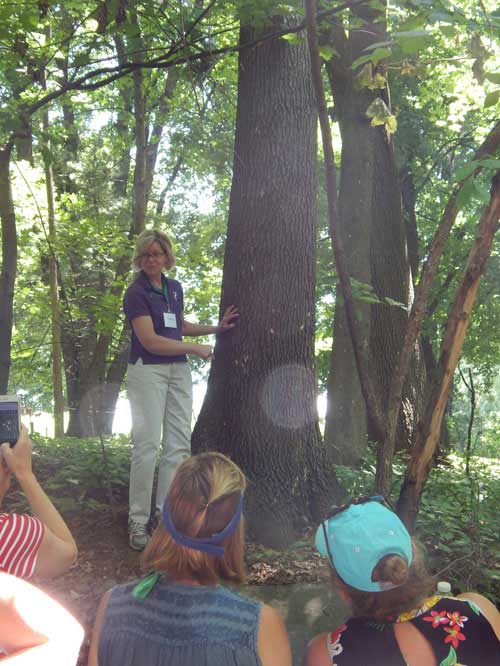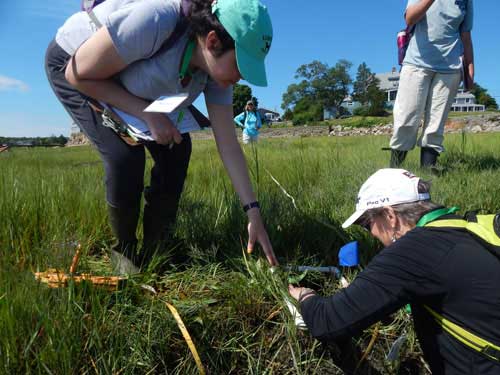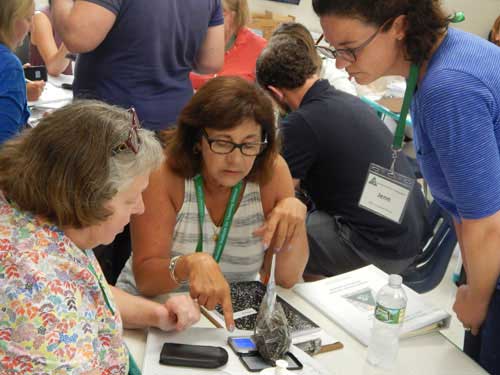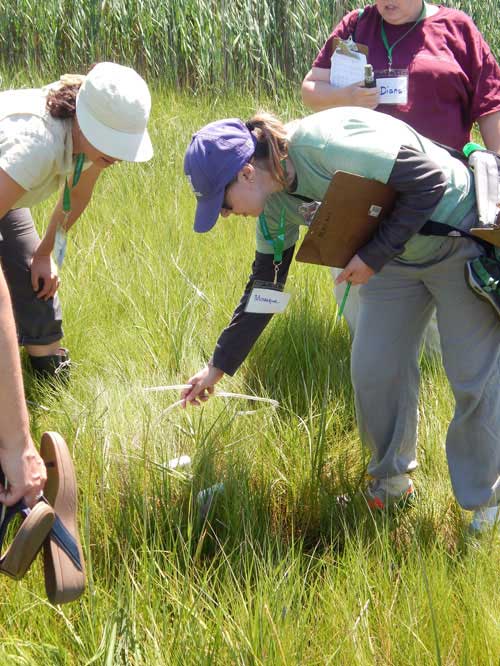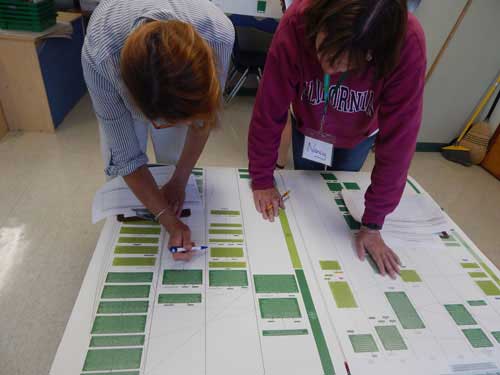Friday, July 27, 2018
For Immediate Release
MITS Summer Professional Development Institutes Create
Learning Opportunities for Teachers
In five regions across Massachusetts this July, educators came together to engage in hands-on, minds-on learning by participating in the Museum Institute for Teaching Science (MITS, Inc.) 2018 Summer Professional Development Institutes. By reading articles before and participating in hands-on experiences during each on-site week, teachers strengthened their understandings of science content based on the focus of each institute. They also explored inquiry-based approaches to learning and developed curriculum pieces for their classrooms that incorporated the Science and Engineering Practices and Standards adopted by the State of Massachusetts.
During the weeks of July 9 and 16, institutes were held in the Cape Cod, MetroWest, Berkshire, North Shore, and Central regions of Massachusetts for elementary, middle, and high-school teachers.
The MetroWest region had a “place-based learning” theme and explored the resources and sites of the Walden Woods Project, Concord Museum, and Mass Audubon’s Drumlin Farm. Instructors tied together human historical events with the geology and ecology of the region, and considered their environmental impact on the natural system. The socio-scientific experiences of the week inspired teachers to explore their own local or school “place” with students to help expand students’ critical thinking skills.
Teachers investigated clean energy technologies at the Berkshire institute, connecting with resources from Flying Cloud Institute, the Center for EcoTechnology, Berkshire Community College and the Berkshire Wind Power Cooperative. Participants designed their own small-scale wind turbines and explored the impact of adding alternative energy resources to their community’s energy grid. Visits to local sites using sustainable energy sources, including an active wind farm, enriched these investigations.
In the Central region, teachers visited Mass Audubon’s Broad Meadow Brook Wildlife Sanctuary, Tower Hill Botanic Garden, and Mass Audubon’s Wachusett Meadow Wildlife Sanctuary to gain experiences with plants and animals that helped participants understand the form, function and adaptations for survival exhibited by the organism in the wild.
Teachers attending the Cape Cod region learned from educators at the National Marine Life Center, Mass Audubon’s Long Pasture Wildlife Sanctuary, and YMCA Camp Burgess Farm about ways to bring sustainable practices, from fishing to farming, into their classrooms. A trip to the Woods Hole Oceanographic Institute and Kingman Marina gave them a first-hand look at the engineering and science used to study indicator species, in particular, seals as a sentinel species for human health, and effective business practices to maintain a healthy marine environment.
On the North Shore, teachers considered how students can investigate human impacts on the environment within the boundaries of their school yards and local field sites. Educators from Mass Audubon’s Endicott Wildlife Sanctuary, Glen Urquhart School, and scientists from the Plum Island Ecosystems Long Term Ecological Research program joined together to guide teachers in their investigations throughout the week. Teachers also explored how they can engage their students in local citizen monitoring projects.
By engaging in hands-on, minds-on activities for a full week, educators experienced the Science and Engineering Practices first-hand, and they examined the revised MA Science and Technology/Engineering Standards related to the institute content. Learning alongside other educators from their region, teachers connected with STEM resources in their communities and developed their own inquiry-based lessons.
In November, teachers who participated in the MITS Summer Professional Development Institutes will come together again for callback sessions. They will share their successes and challenges with implementing inquiry-based teaching. By regrouping in the fall, participants gain valuable insight into classroom applications of hands-on, minds-on science education, and rekindle the summer’s connections to regional resources.
The Museum Institute for Teaching Science specializes in providing hands-on, minds-on, inquiry-based STEM professional development for formal and informal educators. For more information, visit www.mits.org or call 617-328-1515.




